How to Repair Upholstery Cushions and Covers
How to Repair Upholstery Cushions and Covers
Every editorial product is independently selected, though we may be compensated or receive an affiliate committee if y'all purchase something through our links. Ratings and prices are accurate and items are in stock as of time of publication.

Repair your cushions and covers by following these good tips.
Always wonder how pros sew buttons onto pillows, or how they go their cushions so perfectly straight and smooth? Unwrap the mystery of upholstery, and sew together together some skills to run up pocket-sized projects and make repairs. I spent a twenty-four hour period with Nate Van Hofwegen at his store talking about his upholstery magic and what tricks he could teach usa.
See The Adept
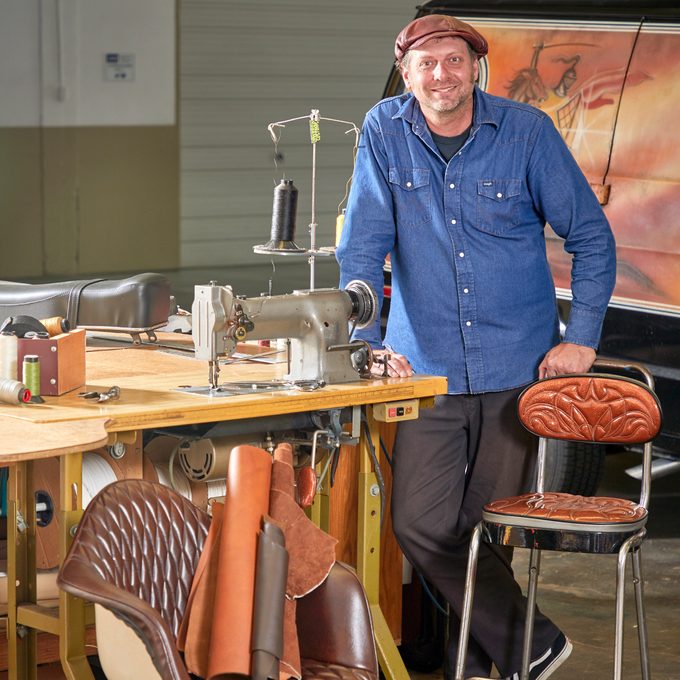
- Nate Van Hofwegen has been an upholsterer for 20 years. His favorite projects are vintage van and motorcycle seats.
Utilise The Right Needles For The Textile
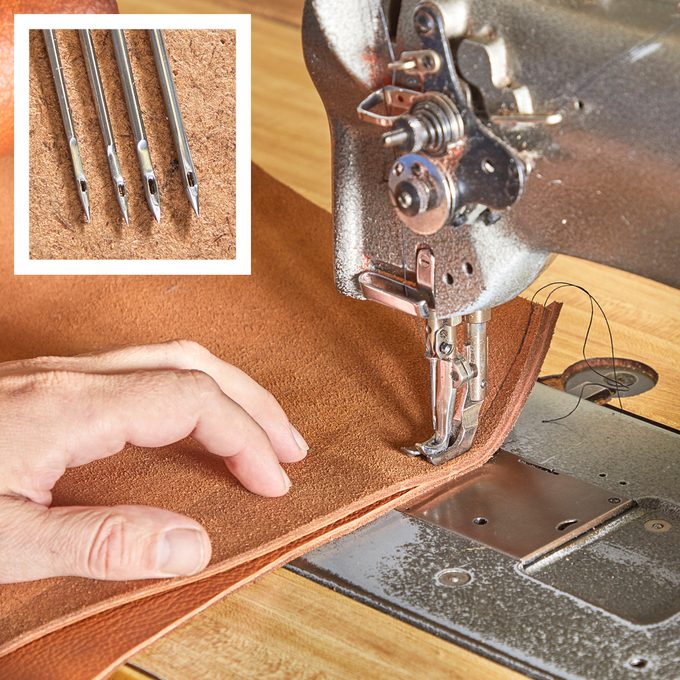
- Choosing the right sewing needle for your textile eliminates frustration and breakage.
- Van Hofwegen uses 140/22 needles for about of his vinyl projects. Leather and denim require thicker, stronger needles.
Make Your Pleats Neat
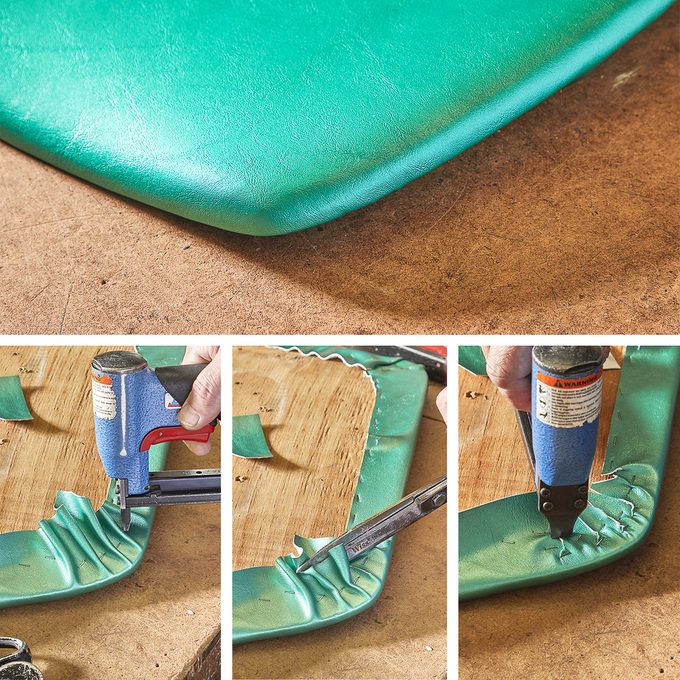
- Making rounded corners and edges expect consequent is non easy. Hither are the steps Van Hofwegen takes to attain the same look effectually the entire seat cushion.
- Starting time, he gathers the material tightly effectually the corner and spaces the staples evenly.
- He then trims the backlog material, snipping the crowns off the pleats.
- Finally, stapling about 1/two-in. from the edge, he fastens the loose tails so they lie apartment.
Replace, Don't Repair
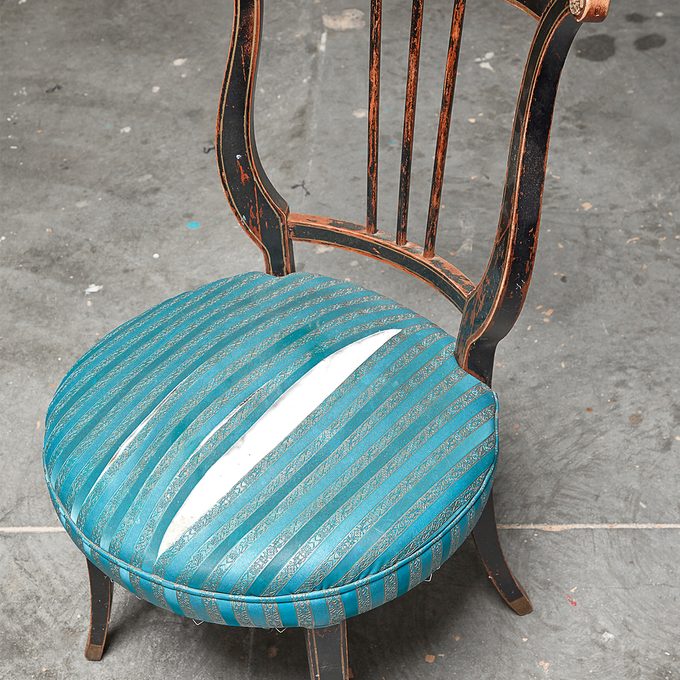
- We've all seen the upholstery repair kits that claim to "work like magic." The problem is, they don't.
- Ofttimes it's easier to merely supervene upon your item. Sometimes you tin't vanquish new.
Choose the Correct Textile
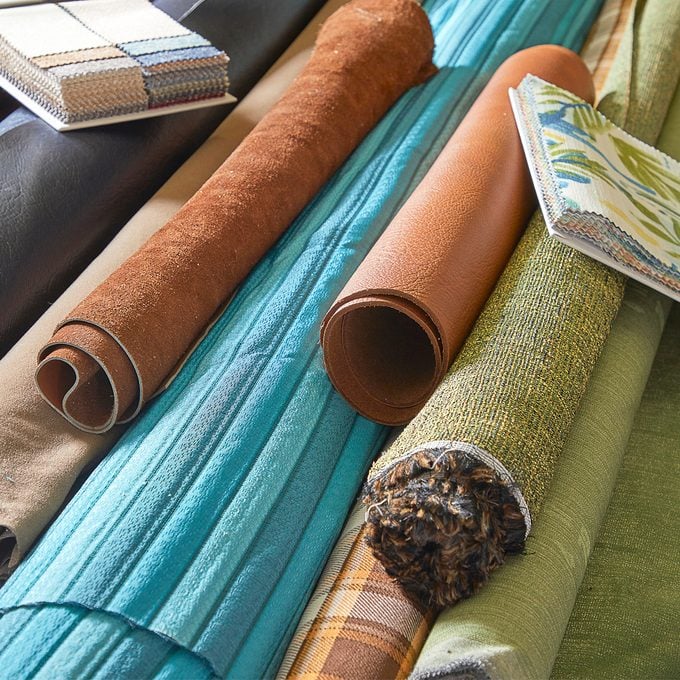
- Use the right material for your project — outdoor cushions need fabric designed to withstand the elements.
- There are even special types of vinyl that make upholstery easier.
Cut Foam
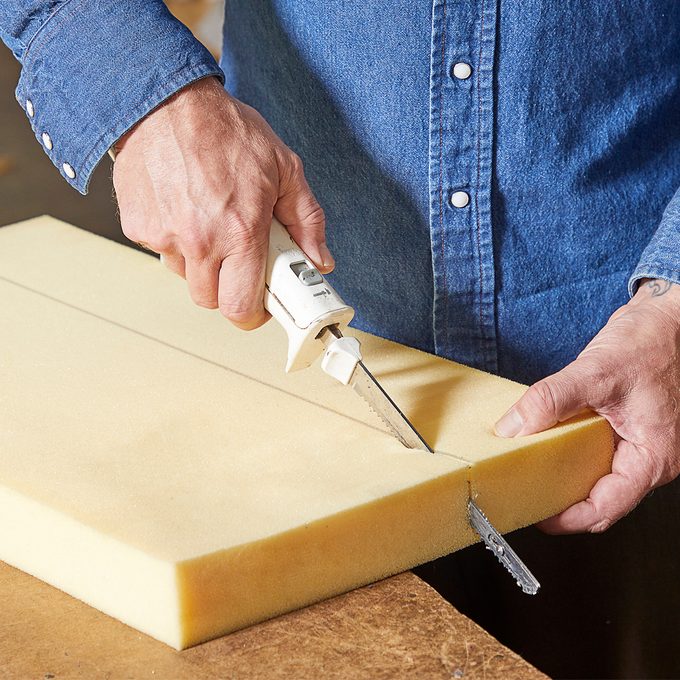
- Van Hofwegen has a saw designed to cut foam. An everyday culling to this pro tool is an electric bread knife.
- A staff of life knife's serrated edges easily cut through thick foam. The pocketknife is also lightweight and easy to control.
Stiffen Edges With Batting
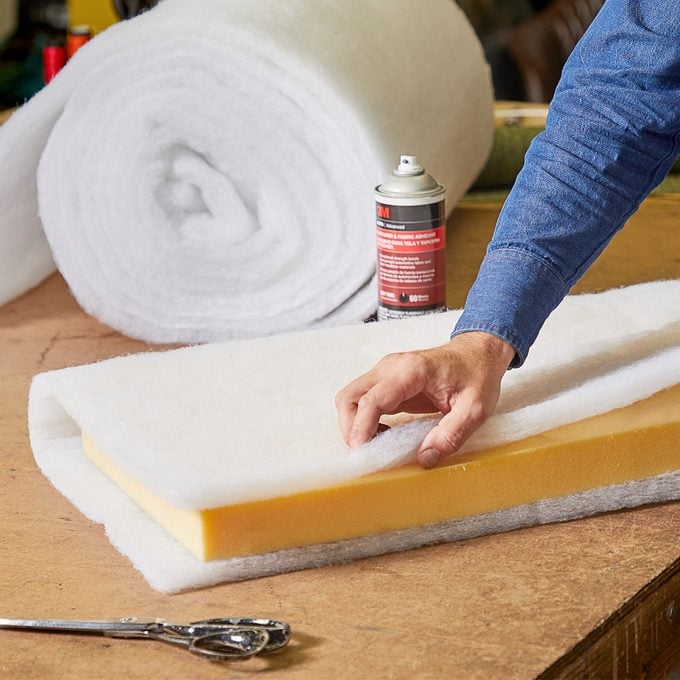
- Polyester batting stiffens a absorber and eliminates wrinkles, making a cushion cover taut and smooth.
- Glue the batting to cream with a spray such as 3M Headliner & Fabric Adhesive ($19).
Make A Blueprint

- When yous're making more than than one of annihilation, a pattern is essential.
- Van Hofwegen suggests making patterns that business relationship for the seam allowance, so you don't have to retrieve to offset the line every time you trace the blueprint.
- Van Hofwegen uses chalk, not markers, for marking his lines. Chalk isn't permanent, and markers tend to bleed.
Lock Your Sew together
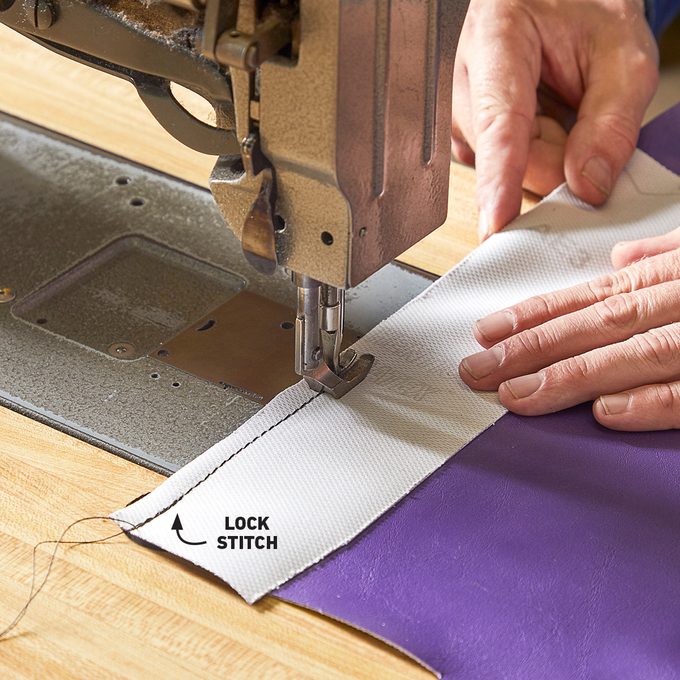
- Backstitching locks a sew in place, ensuring it won't unravel.
- Start past going in contrary about an inch, and and then go frontwards over that scrap of stitching. This locks in the thread at the starting time of the seam.
- Do the same at the end of the seam.
Utilize A Special Foot For Zippers
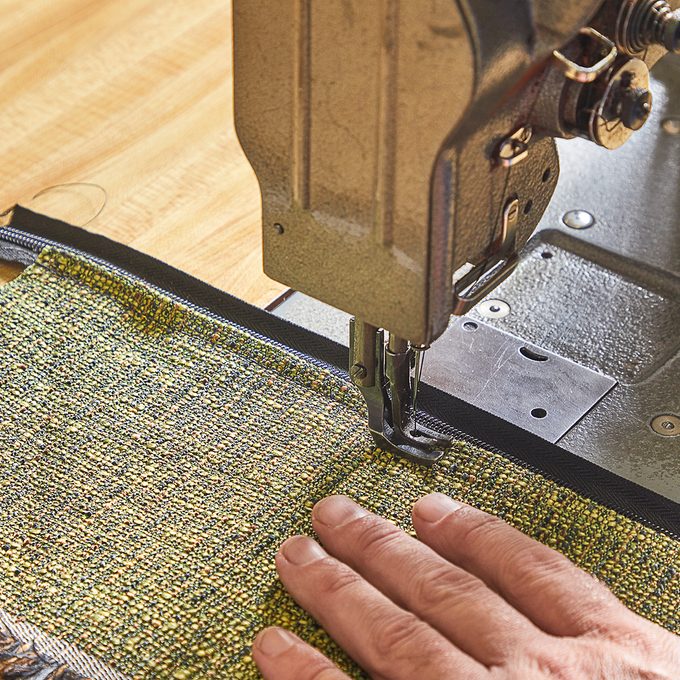
- Zippers and piping oftentimes require stitching closer to the border than a regular foot will allow.
- For these operations, Van Hofwegen uses a special foot on his sewing machine.
Replace A Missing Button
- The buttons on a tufted absorber often come up loose, get damaged or disappear. Van Hofwegen showed me how piece of cake it is to replace them.
- With a long needle called a regulator and a elementary knot, you can supercede a push on any cushion.
Upholsterer'southward Slipknot
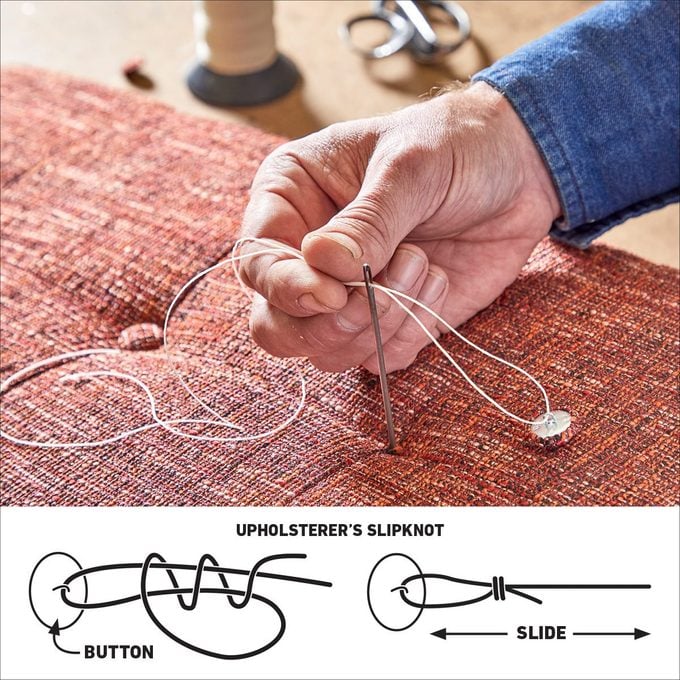
Nate'south Tools of the Trade
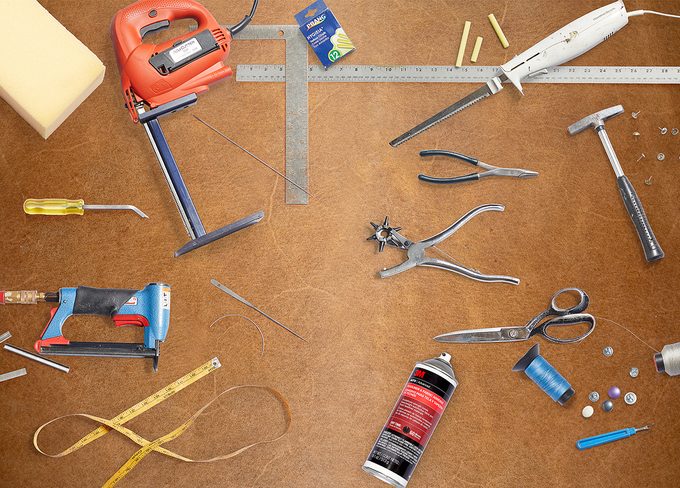
Here are the essential tools Van Hofwegen uses every twenty-four hour period in his upholstery shop.
Regulator

- A regulator is the needle used to supplant tufting buttons. Expect to pay virtually $x for 1.
Staple Remover
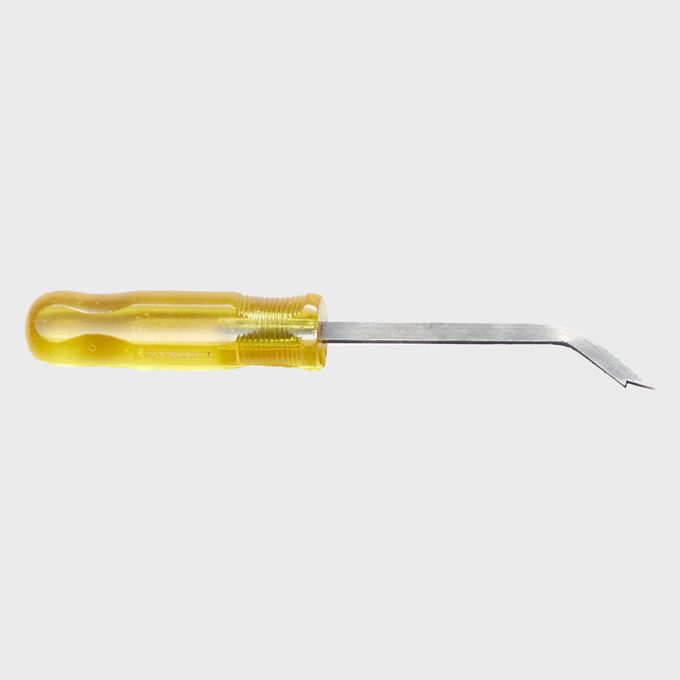
- This essential tool for removing staples costs about $30 online.
Foam-Cutting Saw
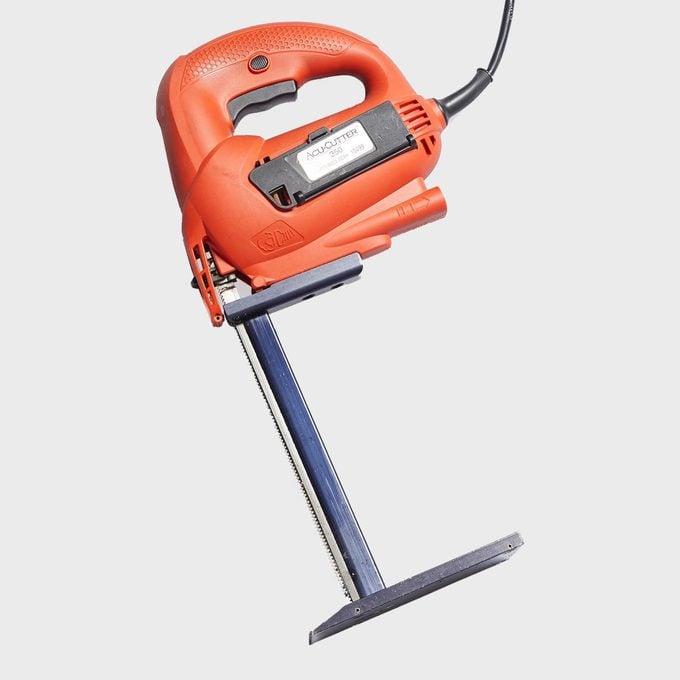
- For large pieces of cream, this purpose-built saw is indispensable.
Needles
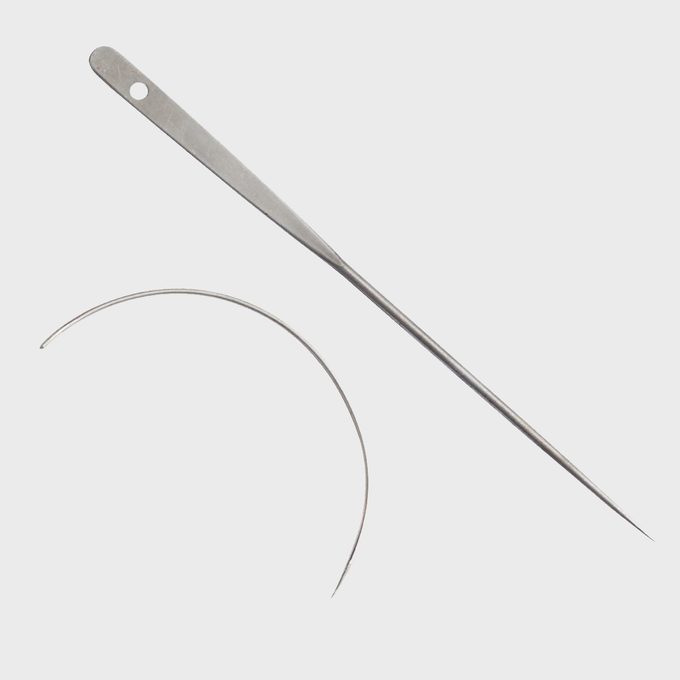
- A keen array of needles will serve you well. Detect them at your local fabric, hobby or leather working stores.
Pneumatic Stapler
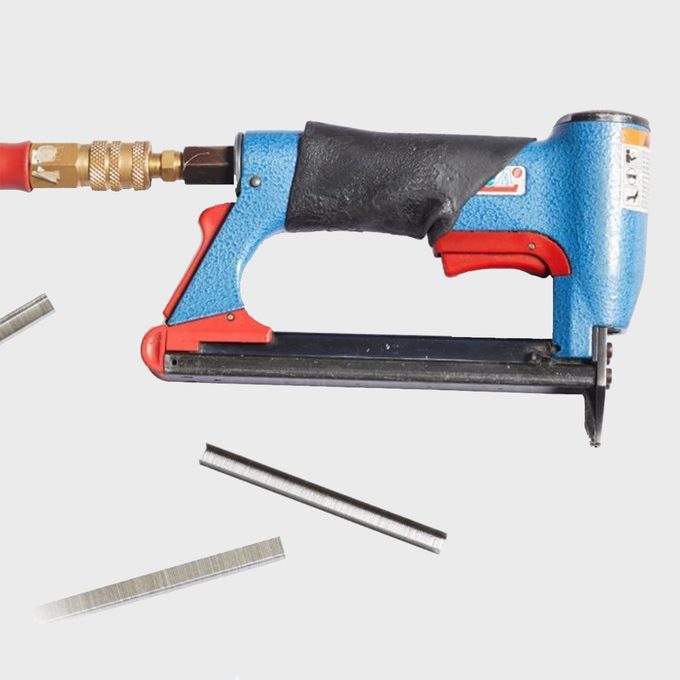
- A pneumatic stapler is probably the most-used tool in Van Hofwegen's store. He uses 1/2-in. staples. Expect to pay at least $80 for a adept one.
Soft Tailor's Tape
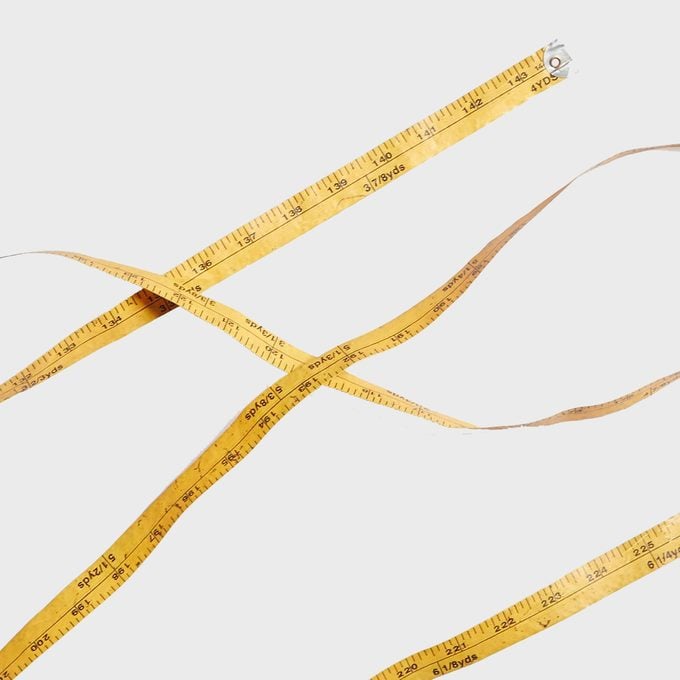
- Essential for measuring curved surfaces, these flexible tapes are bachelor at fabric stores for about $5.
Chalk
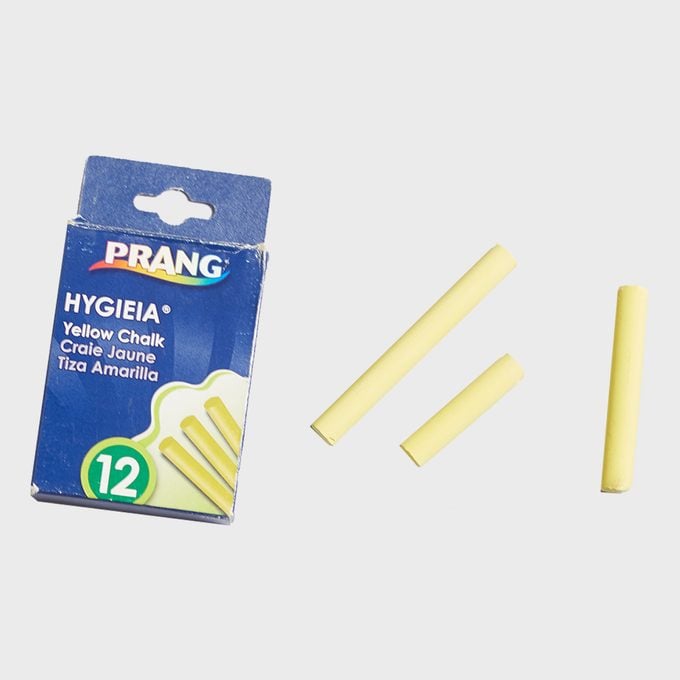
- Instead of markers, Van Hofwegen uses chalk to mark his fabric.
Straightedge
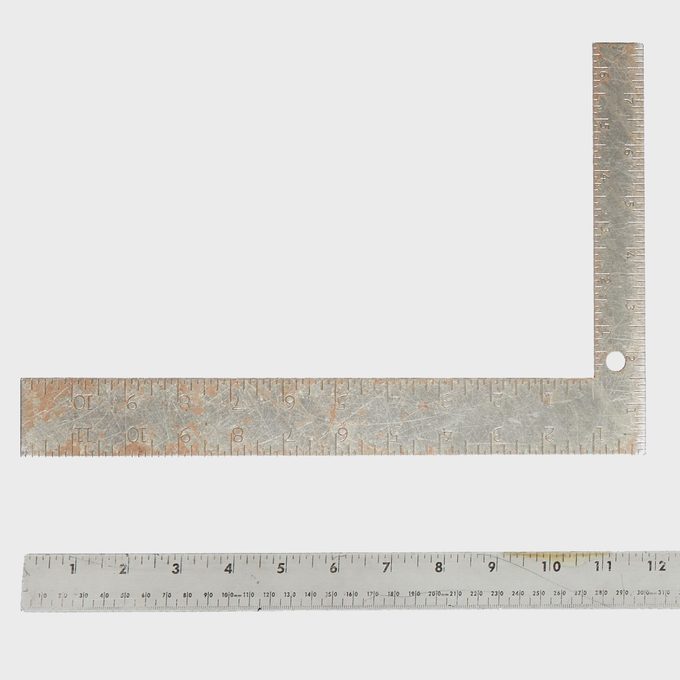
- Merely similar a craftsperson in a wood shop, an upholsterer also uses a straightedge.
Electric Staff of life Knife
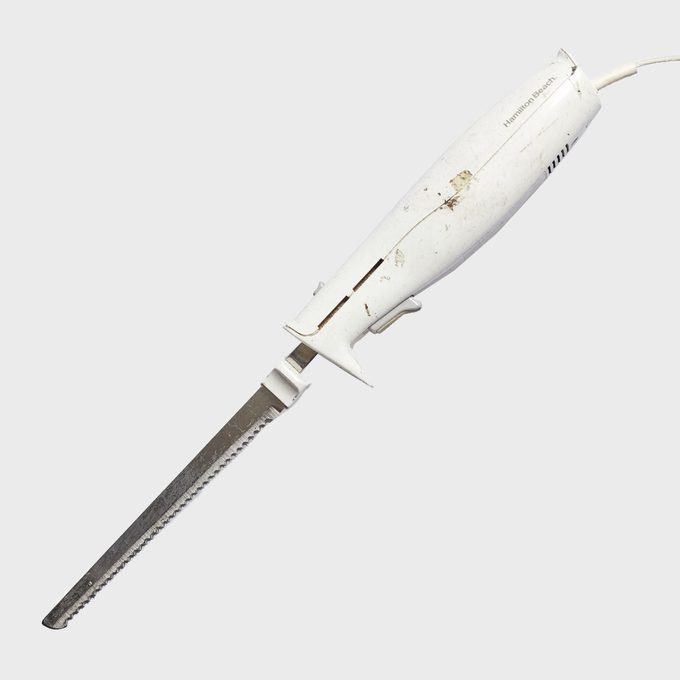
- For the rest of usa, an electrical bread pocketknife does a swell job of cutting foam.
Pliers
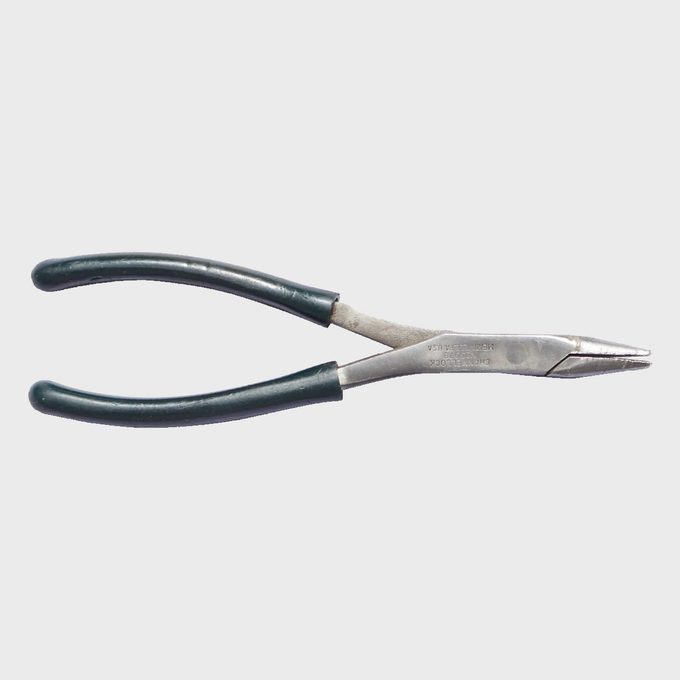
- A good pair of pliers costs less than $10.
Tack Hammer

- When you're working with studs, a tack hammer makes life and then much easier. Discover i for near $30 online.
Hole Punch

- Van Hofwegen's professional leather dial from Craftool costs nearly $50.
Scissors
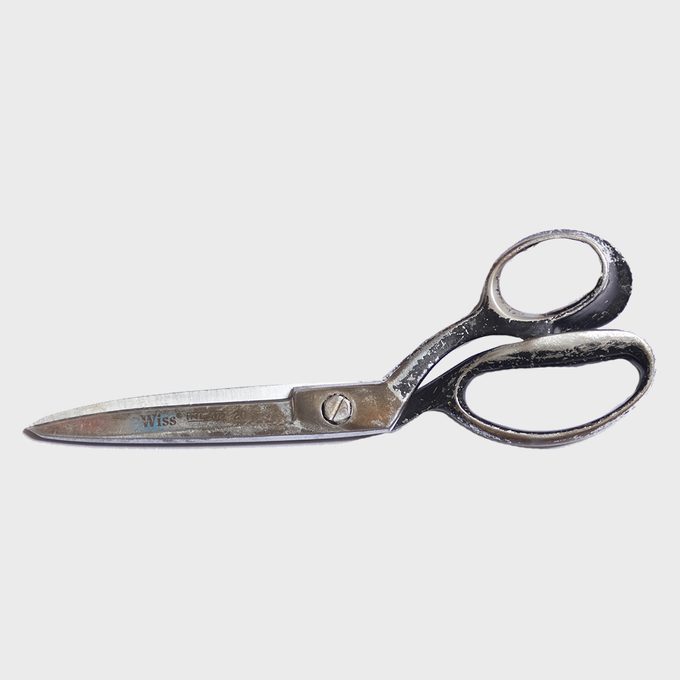
- Van Hofwegen has many pairs of scissors. Like most upholsterers, he's unwilling to share. Buy your ain for about $30.
Adhesive
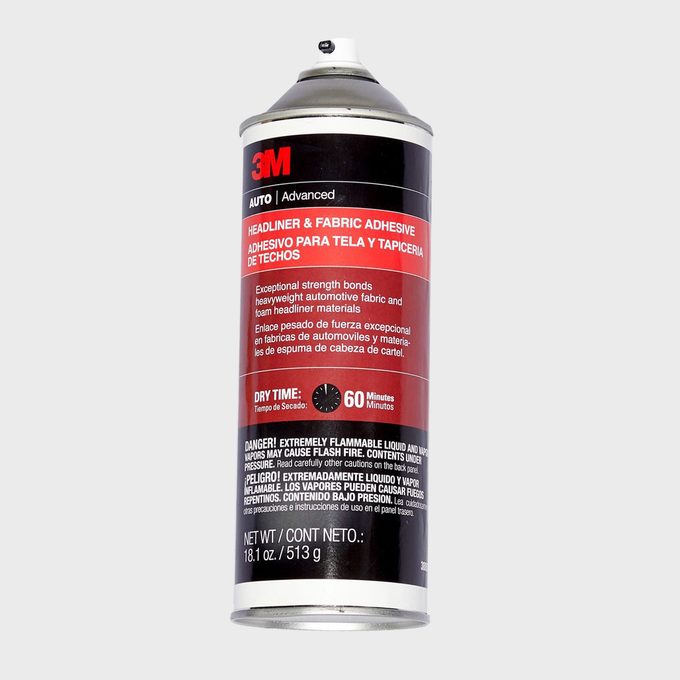
- Van Hofwegen relies on 3M Headliner & Fabric Adhesive. Find it at your local automotive store.
Seam Ripper
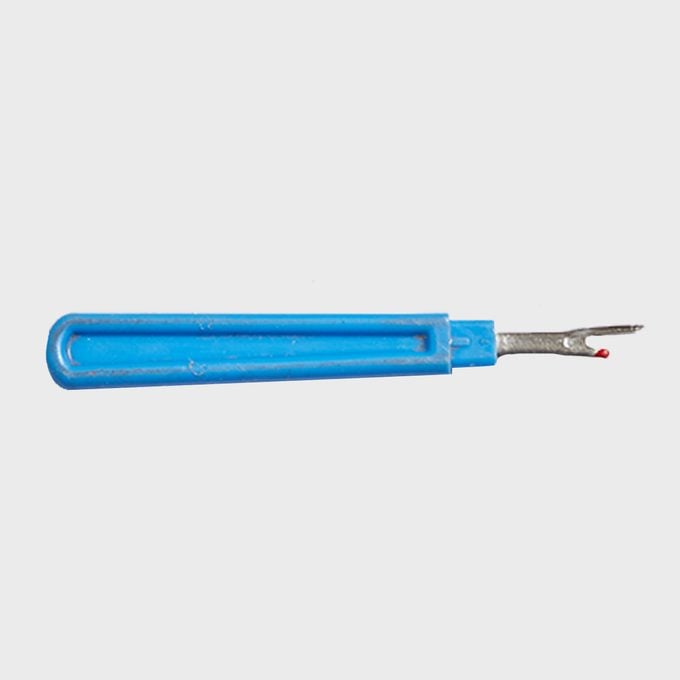
- A seam ripper is perfect for ripping long seams and getting where scissors just tin't reach. Find one at the fabric store for about $7.
Shopping for Materials
- Most materials needed for an upholstery project — even foam — are bachelor at local fabric and hobby stores.
What Is a Yard?
- Commercially available upholstery fabric is typically 54 inches wide. At a fabric store, you may find some fabric that'south non this broad. But no matter how wide the material is, a g of material is always three anxiety long.
Originally Published: Oct 28, 2021
Source: https://www.familyhandyman.com/article/how-to-repair-upholstery-cushions-and-covers/
0 Response to "How to Repair Upholstery Cushions and Covers"
Post a Comment